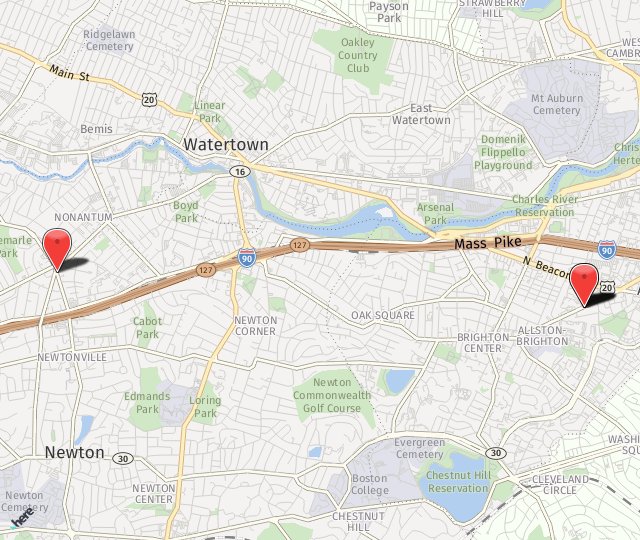Pediatric dentistry is essential. Let us ensure your child has healthy teeth and gums
It’s never too early to start your child on a lifetime of healthy smiles. With regular checkups, dental care and protective sealants, Dr. Bidabadi can give a child as young as two years old a smile that’s healthy and beautiful.
Dr. Bidabadi’s incredibly easy rapport with children, coupled with her gentle treatment, will put your children at ease in an instant. She’ll also teach them proper “smile maintenance,” so they can develop healthy dental habits that last a lifetime.
Teaching Children Healthy Dental Habits

Children's dentistry starts with education. It’s important to teach them general dental health and techniques early so that they feel invested in their own dental care.
Children may be young but they are definitely capable of understanding the importance of good dental practices.
Treating Baby Teeth
Baby teeth are at risk for decay as soon as they first appear, often around six months old. Decay is most common in the upper front teeth due to bottle feeding.
Although rare, decayed baby teeth may need to be removed prior to permanent teeth coming in. To avoid such treatment, it is important to clean your child’s teeth and gums regularly.
- Begin cleaning your baby’s gums by wiping them with a clean, moist washcloth. As soon as teeth appear, decay can occur so begin light brushing of baby teeth as soon as they appear.
- For children younger than 3 years old, clean teeth with a fluoride toothpaste in an amount no larger than a grain of rice. Do this twice a day or as directed by a pediatric dentist or physician. Supervise children’s brushing to ensure that they use the proper technique.
- For children 3 to 6 years old, you can increase the amount of toothpaste to a pea-sized amount. Continue to monitor your child’s teeth brushing, twice a day.
- As soon as your child has two teeth that touch, you should begin flossing their teeth daily.
Why is Fluoride Important for Children?
All people, when they eat, secrete acids that help break down food. The foods that we eat, as well, contain natural acids. These can be left around the teeth and mouth after a meal is over. This, along with the natural demineralization that occurs from chewing, can eat away at healthy enamel. Children need strong enamel to protect them from cavities, and fluoride is a proven way to help remineralize teeth and keep them strong over extended periods of time.
How Can My Child Get the Fluoride they need for Healthy Teeth?
Fluoride can be obtained through several avenues. For older children, fluoridated toothpaste is one of the most common ways to directly give teeth a "fluoride treatment." Public drinking water in most cities across America has fluoride added in, a step made decades ago to help children and families receive the fluoride needed to sustain healthy teeth. If your child tends to consume only bottled water, they may not be getting fluoride through this avenue.
Depending on your child's needs, their dentist may suggest that they receive professional fluoride treatment. The FDA and the American Dental Association both approve of this treatment for children as young as six months old. Fluoride treatment may involve the use of a prescription-level mouthwash, toothpaste, or supplement. In younger children, it may be performed as a "varnish" that the dentist applies in the office.
How Can I get My Child Ready for their Visit to the Dentist?
It is important to us, as we know it is to you, that children come to feel comfortable in the dentist's office. Studies suggest that children who are eased into dentistry and receive early and ongoing exams and cleanings tend to have little problem with dental anxiety as they get older. These children also tend to take better care of their teeth into adulthood, which helps them avoid the unnecessary problems that occur when oral care is lacking.
There are several ways that you can help your child feel more prepared for dental visits. You might read age-appropriate books about seeing the dentist or play games with them in which they get to pretend to be the dentist or the patient. It can be very helpful for children to get to play both parts so they can begin to understand what happens during their visits. Finally, we welcome you to contact our office to arrange a time for you and your child to stop by! Coming into the office to meet the care team can introduce your child to dental visits without any pressure to sit in the treatment chair for any length of time.
Is it Really Necessary to Treat Cavities in Baby Teeth?
All of your child's teeth are important, even those that will eventually fall out. If your child develops cavities, they'll be in pain. Their cavities may prevent them from chewing comfortably or wanting to eat the variety of foods that are needed for health and wellness. Tooth decay can also affect speech development if not handled appropriately.
When Should a Child First See a Dentist?
As soon as your child’s first tooth appears, it’s time to schedule a dental visit. The ADA recommends that the first dental visit occur within six months after the first tooth appears but no later than a child’s first birthday.
At this first visit, Dr. Bidabadi will examine your child’s mouth and check growth and development, including:
- Clean your child’s teeth and provide a routine for daily care.
- Perform an inspection for injuries or other concerning oral conditions.
- Evaluate the potential for developing tooth decay.
- Discuss teething, pacifier use, and thumb sucking.
At What Age Should I Begin To Brush My Child’s Teeth?
Most babies will develop their first teeth between six and twelve months of age. A baby-safe toothbrush and a small amount of toothpaste are recommended for very young children. Brushing with gentleness and care is also vital so as not to damage their gums.
Is Dental Insurance Required for Children?
While dental insurance for children is not required, having insurance for them will reduce your out-of-pocket cost when paying for their dental treatments. If you and your child frequently keep up with checkups and cleanings, which should be every six months, dental insurance can help keep your child’s annual dental costs at an affordable price.
How Can I Ensure My Child Practices Good Oral Hygiene Habits?
One influential way your child can develop good oral hygiene habits is for them to see you practicing good oral hygiene habits as well. It’s best to begin brushing your teeth with your child and brushing their teeth for them as early on in their childhood as possible. Making this act a fun, collaborative part of their morning and nighttime routine can help them look forward to the next time they do it. Doing so will help them recognize a routine, allowing them to develop the habit of taking care of their oral health on their own as they age.
When Should a Child First See a Dentist?
As soon as your child’s first tooth appears, it’s time to schedule a dental visit. The ADA recommends that the first dental visit take place within six months after the first tooth appears, but no later than a child’s first birthday.
At this first visit Dr. Bidabadi will examine your child’s mouth and to check growth and development, including:
- Clean your child’s teeth and provide a routine for daily care.
- Performing an inspection for injuries or other concerning oral conditions.
- Evaluate the potential for developing tooth decay.
- Discuss teething, pacifier use and thumb sucking.
Schedule a Consultation With Your Child’s New Dentist Today!
At Soft Touch Dentistry, we know how complex or intimidating a dental visit can be for a child. With years of expertise in both general and pediatric dentistry, Dr. Nazila Bidabadi and her team are ready to be there for your child on their oral health journey. To schedule your first consultation with us, click here or call 617.332.8146 to reach a team member at our office in Brighton or Newton, MA.
What People Say About Us!
Goddess Of Dentistry!
“Dr Bidabadi is the goddess of dentistry. I have been been going to see her since 1990. She is meticulous, and has the deepest concern for your overall health. She takes the time to sit down and listen to your dental problems. She has the nicest, thorough and knowledgeable hygienists.”
– Don P., Boston, MA
Click here to read more reviews.
It’s important to note that infants and toddlers who do not receive an adequate amount of fluoride may be at an increased risk for tooth decay since fluoride helps make tooth enamel more resistant. Bottled water may not contain fluoride; therefore, children who regularly drink bottled water or unfluoridated tap water may be missing the benefits of fluoride.


